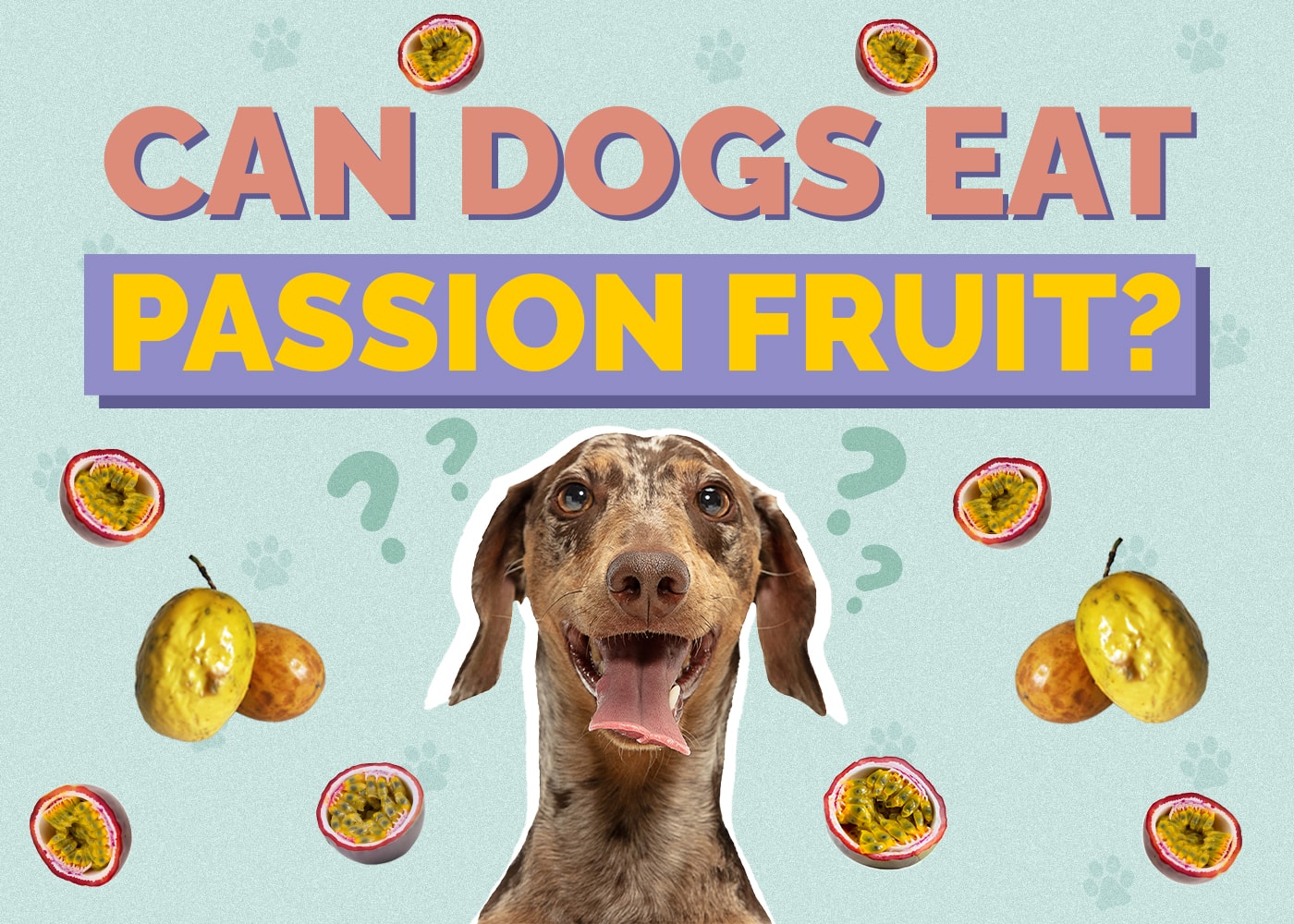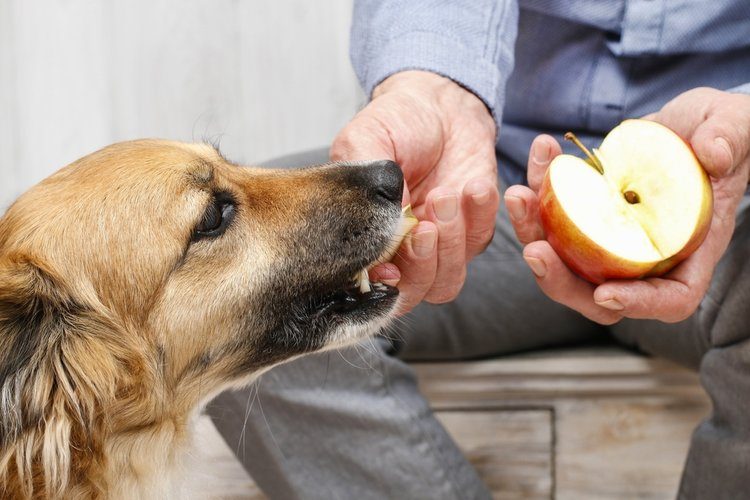Can Dogs Eat Passion Fruit? What The Science Tells Us
By Jordyn Alger
Updated on

If you are looking for a new treat to feed to your dog, you may be considering passion fruit. You have likely heard of other pet parents using fruits or veggies as treats for their dogs, so why not use passion fruit? Well, as it turns out, there are very serious consequences to feeding your dog passion fruit, so it is not something you should make a part of your dog’s regular diet.
The flesh of the passion fruit is not toxic to dogs, but in high quantities, the fruit can cause health issues for your canine. To learn more about the effects of passion fruit on your dog and which fruits are safe to feed dogs, keep reading below.
Dangers of Feeding Passion Fruit to Your Dog
Passion fruit has plenty of health benefits for humans, and since it is full of antioxidants, vitamins, and other nutrients, it can be easy to think that dogs will also benefit from a nibble of passion fruit. However, that isn’t the case. Possible side effects of eating passion fruit may include:
- Choking: Passion fruit is full of seeds, which may be a potential choking hazard for your dog. It can be hard to cut into small pieces, and large chunks are difficult for dogs to swallow. The rind may also present a possible choking hazard.
- Allergic reactions: Your dog may have a food allergy to passion fruit, and eating it can cause an adverse reaction. Signs include swelling, gastrointestinal distress, and breathing difficulties.
- Cyanide poisoning: If a passion fruit is not yet ripe, it will contain high levels of cyanogenic glycosides. Similarly, the seeds in passion fruit have cyanide content. Cyanide poisoning is a severe health condition that can cause digestive issues, difficulty breathing, rapid heart rate, convulsions, and even death.
What to Do if Your Dog Has Eaten Passion Fruit

Although the flesh of passion fruit is not toxic to dogs, the chance of cyanide poisoning is a worrying possibility. If your dog has taken a bite of passion fruit, you must seek prompt veterinary care. Even though there is a chance that your dog will be fine beyond a temporary stomach ache, it is better to be safe than sorry. If your dog does have cyanide poisoning, you won’t have much time to seek treatment after the effects begin to set in.
The best way to prevent your dog from getting its teeth into a passion fruit is to keep the fruit in a secure location that it cannot access. If you have a passion fruit tree outdoors that the dog has access to, you will need to take extra precautions to ensure that it cannot get into the fruit on the ground.
Fruits that Are Safe for Dogs to Eat
If you want to find a fruity treat for your dog, it is best to avoid passion fruit. Thankfully, there are plenty of alternatives that you can choose from. With any of these fruits, ensure that you are feeding them to your dog in manageable, bite-sized pieces so that it does not choke on large chunks.

Apples
Apples are an excellent treat for dogs! You will need to remove the stem, leaves, and core before feeding them to your dog, and it is also essential to remove the seeds. Like the passion fruit, the seeds contain cyanide, so it is necessary to remove them.
Bananas
Bananas are safe for dogs to eat but are very high in sugar content and should only be fed sparingly. Banana peels should not be fed to dogs because they are difficult to digest and could be a choking hazard.
Blueberries
Blueberries are a low-calorie treat, making them a great choice for dogs that need to watch their weight. They are also a great source of fiber, antioxidants, vitamin C, and phytochemicals. Blueberries are also known to benefit the cognitive ability of aging animals.
Cantaloupe
This fruit has a high sugar content, so it should not be given to your dog frequently. However, cantaloupe is also around 90% water, making it an excellent source of hydration for your dog. Just be sure to remove the rind before feeding small pieces.

Pears
Pears are an excellent snack for your dog. Remove the pit, stems, leaves, and seeds before feeding, and avoid canned pears since they have too much sugar for dogs. The seeds also contain cyanide, so be sure to remove all of them. The nutrition your dog can get from pears includes copper, fiber, vitamin C, and vitamin K.
Toxic Fruits
Grapes are toxic for dogs. Even a single grape can be fatal. Grapes can cause sudden or acute kidney failure in dogs, so all grapes must remain out of your dog’s reach. If you believe that your dog has eaten grapes, get in contact with your vet immediately.
Conclusion
Not all fruits are safe for your dog to eat, and passion fruit is among them. If your dog takes a bite out of a passion fruit, you will need to get it to the vet right away due to the possibility of cyanide poisoning. While passion fruit is not a good treat for your dog, plenty of other fruits can be. Before feeding anything new to your dog, consult your vet.
See Also:














